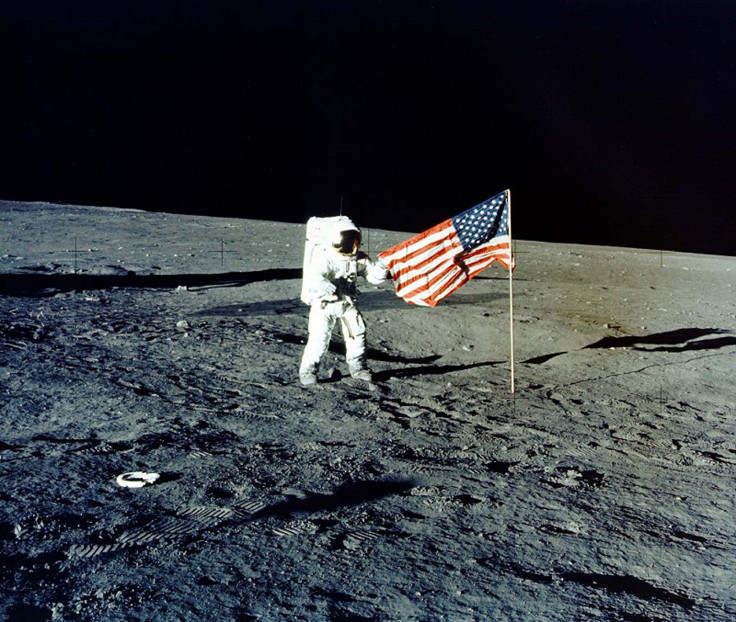Moon Landing Fake? Science Proves Most Conspiracy Theories Are Bogus

Did man really walk on the moon? is climate change a big hoax? Do vaccines cause autism? These popular conspiracy theories might take up plenty of space on the internet, but a new study shows they and other conspiracy theories are bogus, because it would be too hard for thousands of people to keep something from the public for so long.
The study looked at how long it would actually take the public to prove alleged conspiracies. David Grimes, from Oxford University in the United Kingdom, said he came up with an equation that tested the life of a conspiracy theory based on previous scandals that had been proven true, including the Tuskegee syphilis experiment, where penicillin for syphilis was purposefully withheld from African-American patients. Grimes considered the number of conspirators involved, the amount of time that has passed and the intrinsic probability of a conspiracy failing.
“It is common to dismiss conspiracy theories and their proponents out of hand, but I wanted to take the opposite approach, to see how these conspiracies might be possible,” he told the Guardian. “To do that, I looked at the vital requirement for a viable conspiracy: secrecy.”
He applied his equation to four famous conspiracy theories: the moon landing was fake, climate change is a fraud, vaccines cause autism and pharmaceutical companies have a cure for cancer but refuse to share it with the public. His equation determined that if the four conspiracies were real, facts supporting the claims would have been made public by now.
He determined the maximum number of people who could take part in a conspiracy in order to keep the public in the dark. To last a century, a secret scandal should include fewer than 125 collaborators. For example, the moon landing "hoax" began in 1965 and would have involved about 411,000 NASA employees. With these parameters, the truth should have come out in 3.7 years, while and the cancer "conspiracy" would have been proven true to the public within 3.2 years.
“Even if a small devious cohort of rogue scientists falsified data for climate change or attempted to cover up vaccine information, examination by other scientists would fatally undermine the nascent conspiracy. To circumvent this, the vast majority of scientists in a field would have to mutually conspire, a circumstance the model predicts is exceptionally unlikely to be viable," he said.
Monty McGovern, a mathematician at the University of Washington, told the BBC the study's methods "strike me as reasonable and the probabilities computed quite plausible."
© Copyright IBTimes 2024. All rights reserved.






















